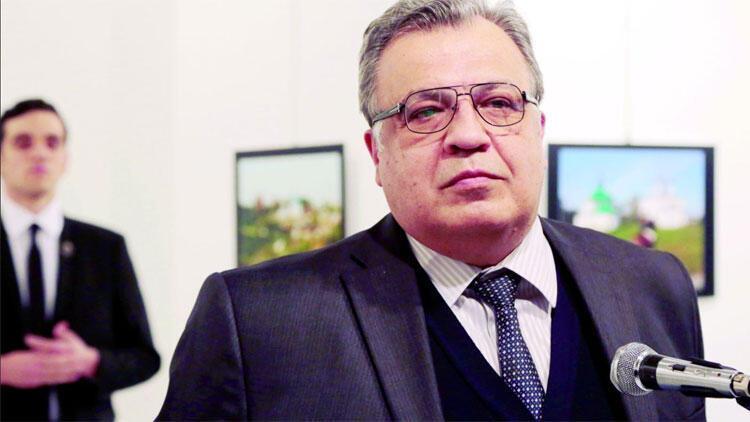
The assassination of Russia's ambassador to Turkey in 2016 sought to sabotage the normalization of ties between the two countries as well as a cooperation deal struck in 2001, an expert told Anadolu Agency.
On Dec. 19, 2016, Andrey Karlov was killed while speaking at the opening of an art exhibition in Ankara by Mevlüt Mert Altıntaş, an off-duty police officer linked to the FETÖ, the group behind the defeated coup attempt of 2016 in Turkey. The assailant was shot
dead in a standoff.
Mehmet Seyfettin Erol, head of the Ankara Centre for Crisis and Policy Research (ANKASAM), said the assassination of the Russian envoy first aimed to harm the healing of relations between Turkey and Russia, who were going through rough times after the former downed the latter's fighter jet on Nov. 24, 2015.
"The developments observed following the assassination of Russian Ambassador to Ankara Andrey Karlov on Dec. 19, 2016 show that it targeted the 'normalization process' dating to June 27, 2016 and the strategic cooperation implemented under the Eurasia Cooperation Action Plan of 2001," Erol said.
Erol said it was now clear that the FETÖ terror group and its puppeteers planned this "terrorist act" at a time when bilateral ties between Ankara and Moscow were moving in a positive direction and both countries had put normalization on their national agendas with a view to overcoming the dispute over the downed fighter jet.
He went on to say that the ongoing trial into Karlov's assassination and testimonies pointed to the FETÖ terror group and how it planned the killing six months prior to the incident in a bid to create hostility between Turkey and Russia.
However, the terror group and its puppeteers failed miserably according to Erol, as both countries now closely cooperate in political efforts aimed at bringing an end to the civil war in Syria.
"The response by Turkey and Russia manifested itself with further and deeper strategic cooperation," he said, adding the Astana process and Sochi summits pioneered by both countries strengthened bilateral ties, foiling the terror group's efforts to undermine the relations.
Notably, both countries also operate together in northern Syria, where YPG/PKK terrorists are supposed to withdraw as part of an agreement with Turkey and Russia regarding the former's establishment of a safe zone in the region.
He went on to argue that the positive atmosphere of Turkish and Russian relations "undoubtedly" led to the emergence of new balances to spoil plans in the Middle East and the Eastern Mediterranean and noted that agreements on the purchase of Russian S-400 advanced missile system also brought a whole new dimension to the countries' ties.
"With this [Karlov] assassination, both counties have once again seen that historical cooperation is inevitable in light of the developments threatening their interests and survival," he said.
"Therefore," he added, "Turkey and Russia did not fall into the trap set with the 'Karlov assassination', which can be referred to as the 'second Nov. 24 provocation',” he said, referring to the downing of the Russian warplane.
According to the Ankara Public Prosecutor's indictment, Altıntaş received the order to assassinate the Russian ambassador from Sahin Sogut, a FETÖ "covert imam," 10 days before the incident. The indictment stated that Altıntaş communicated with Sogut -- a former employee of Turkey's Information and Communication Technologies Authority (BTK) -- via social media and e-mail accounts.
Notably, an indictment of 28 defendants was filed shortly after the incident. The defendants were accused of violating the constitutional order, being members of an armed terror group, killing by design and attempting to kill with a terror motivation and the prosecutors sought various punishments for them, including life sentences.
The indictment also pointed out that the killing of the Russian envoy was a provocative action against Turkish and Russian ties.
FETÖ and its U.S.-based leader Fetullah Gülen orchestrated the defeated coup attempt of July 15, 2016, which left 251 people killed and nearly 2,200 injured.
Ankara also accuses FETÖ of being behind a long-running campaign to overthrow the state through the infiltration of Turkish institutions, particularly the military, police and judiciary.